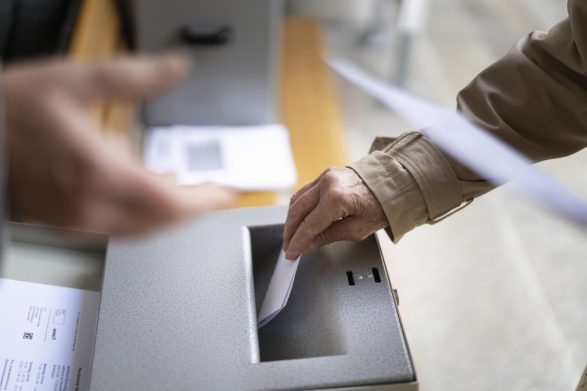Latest polls suggest Albanian Socialists poised for landslide victory in May 11 elections

The latest Report TV survey conducted four months before the May 11 general elections reveals that the Socialist Party (PS) is projected to win a commanding fourth term. If the elections were held today, the Socialists would secure six more parliamentary seats compared to 2021. If elections were held today, the PS would achieve 80 mandates, a significant increase from the 74 seats it won in the last parliamentary elections.
Why is this important: The survey reflects a sharp decline in support for the opposition Democratic Party (DP), which is expected to shrink to 46 mandates, down from the 59 it secured in 2021, including those of allied parties. The results also highlight a dramatic shift in voter preferences, with smaller and newer political parties gaining traction at the expense of established opposition forces. These parties are projected to win 12 mandates, positioning them as key players in Albania’s evolving political landscape.
Key findings: The survey examined voter preferences in five key districts—Vlora, Korça, Berat, Fier, and Elbasan.
- In Vlora, PS maintains its 8 mandates from 2021, while PD’s support is halved from 4 to 2. The remaining 2 mandates are expected to go to new parties.
- In Korça, PS retains its 6 mandates despite the district losing one seat overall, while PD drops from 5 to 4 mandates.
- In Elbasan, PS gains one additional mandate, rising to 9, while PD falls from 6 to 5 mandates.
- In Berat, PS secures 6 of the district’s 7 mandates, leaving PD with just 1.
- In Fier, PS holds 9 mandates, with PD maintaining its 6 mandates from 2021. New parties are poised to claim 1 mandate.
- Diaspora votes: The survey shows that PS enjoys robust support from Albanian emigrants, with more than half of diaspora votes favoring the party across the five districts analyzed.
Context: The survey sampled 16,913 voters, including 11,328 from Albania’s 10 largest districts and 5,585 from the diaspora. The survey employed a mix of random SMS outreach and personal referrals and was statistically weighted to represent each district demographically, geographically, and politically. The margin of error ranges from ±2.9% in larger districts like Tirana to ±4.4% in smaller districts like Lezha.


